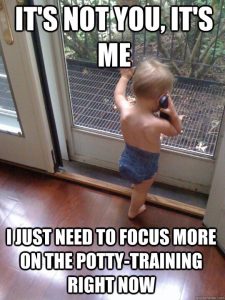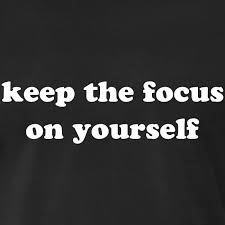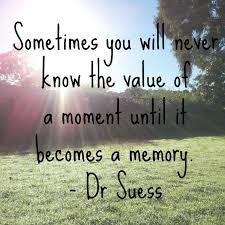Kathy’s nine steps in last week’s post brought back memories that I thought I’d share. And, with Kelly’s comment on how difficult self-forgiveness can be, I began to focus. I want to thank them both.
First a quick smile before we get to the serious stuff.

Like Kathy, I found a home in Al-Anon. It was, for me, a source of guidance at a time when I was no longer certain what I believed or who I could trust.
Along with the 12 Steps and Traditions, for which it is famous, Al-Anon uses pithy sayings that are easier to remember. You might recognize a few of them:
One day at a time
Easy does it
First things first
Keep it simple; surrender
And, the one I want to talk about here,
Keep the focus on yourself
I’d shown up in Al-Anon desperate to get family members sober. It was Feb. 2, 1991.
But this is not a post about the alcoholics in my life. This is a post about how I came to a place of self-forgiveness, self-love, and self-acceptance — three sides of the same coin, if you will — through the unconditional understanding and acceptance I found in that meeting and in others I would attend over the next many years.
It’s the story of how my stuttering stopped controlling my life.
This is not what people usually say about Al-Anon.

Since I was six years old, I’d been paralyzed, off and on, by a debilitating stutter. Let me put it a little more honestly. For years, I’d been paralyzed by my fear that my stutter — or “Janet’s speech impediment,” as my grandmother would euphemistically say — would be exposed for all to see. And with that exposure, would come shame and humiliation.
My stuttering wasn’t simply something I did. No, my stuttering, in my mind, was always caused by something outside myself. There were always situations, subjects, or sounds at fault and I was the victim.
The situations I blamed included telephones, microphones, spotlights, interviews, even just needing to give my name. Especially giving my name. I desperately tried to stay away from all of them.
The subjects I blamed included any topic that hinted at needing me to convince or persuade. From these I stayed far away.
Then there were the sounds. In among the many that caught me unawares, there were the “standards,” those I could always count on to trip me up. “J” was the first one I noticed, probably because it started my first name. Then, somewhere in junior or senior high school, “P” became the bigger challenge. For these I had a special way of “staying away.”
Whatever the particular sound or word that was going to bring me humiliating exposure, I developed a facility to substitute a different word. That the resulting sentences sometimes made no sense was not nearly as important as the fact that, once again, I’d saved the day by NOT STUTTERING.
As you might imagine, I lived my life in a state of chronic stage fright. My stuttering was at the helm of every major decision I made. I was a mess.
At the same time, I wanted nothing to do with stuttering.
When I met people who stuttered, I withdrew as quickly as possible. Their stuttering was a painful reminder of what I was trying so hard — and certainly more successfully than they — to hide. I didn’t want any part of it. Or them. I was aloof.
If the subject of stuttering came up, I fled. Even if there was a possibility it might come up, I fled.
Simply, I didn’t want to think about stuttering. I didn’t want to talk about stuttering, certainly. I didn’t want to do anything about my stuttering, except wish it would go away. And the only way I knew to do that was to not talk. And, rather than feel all that humiliation and fear, I simply stopped feeling anything.
I was numb.
I’d gotten to this point by the time I graduated college. And so, as a numb, aloof, mess of a woman, I went into my first marriage. We had children. I read them bedtime stories, ever so slowly. But I made only one phone call to another parent in all those years. And I introduced myself at a public meeting only once in those decades too. I thought them both disasters. I wanted to hide and never be seen.
This was my existence … for nearly forty years … hiding in a metaphorical closet … until I found myself in Al-Anon. I thank the son who qualified me, constantly. He says “you’re welcome” and smiles.
And so I went off to Al-Anon. Saturday mornings and Monday nights. This was soon followed by meetings on Thursday and Sunday nights. I was serious. I was determined. I wanted to save my son.
“Keep the focus on yourself,” I heard at my first meeting.
“But David needs me,” I replied, as I saw him sinking into a deep dark well. I had to get him out. I was his mother. It was not just my job, it was my reason for being.
“Keep the focus on yourself,” they repeated, kindly.
“It’s his father’s fault.” I explained.
“Keep the focus on yourself.”
“You don’t understand.”
“Keep the focus on yourself.”
“But I’m the one who’s responsible to hold this family together.”
“Keep the focus on yourself.”
“I don’t want to.”
“Good. What do you want?”
I had no idea.

With the unconditional support and acceptance of my 12-Step friends, my therapist, and my sponsor, I came to understand how. There’s another Al-Anon saying, and
Mind your own business
became my call to action
“Attend to your own business,” it beckoned. “Leave other people’s business to them to figure out.”
Despite my pleas that “my son needs me,” I also came to believe that the more I did FOR him, the more I was giving the message that HE COULD NOT.
And, the less I focused on him, the more energy and interest I had in looking at my own behavior, choices, and beliefs.
Sometime the following year, during a weeklong retreat for Codependency, I came fully out of that closet I’d been hiding my stuttering (and me) in for so many years.
I was talking the way I’d developed over the years: a breathless, quivering voice that kept my stuttering at bay when the word substitutions were not enough. The therapist, Nell Taylor, stopped me, interrupting some monologue I was engaged in.
“Janet,” she said. “What’s going on?”
It was not the first time I’d gotten this question, referring to my rather bizarre speech pattern. Ordinarily, I’d slough it off with some excuse, usually, “I’m not feeling well.” or “I was in an accident yesterday and am still feeling a little shaky.” or “I don’t know, what did it sound like?”
Any one of these generally sufficed and my questioner would leave me alone. This day, however, I dared to tell the truth. I dared to look at me and at what I had been doing for the vast majority of my life. I dared to accept the fact that I’d been living a lie, afraid of being who I really was, a person who stuttered.
In one unforgettable moment, I stepped out of that closet, shared my secret shame with a group of eighteen, and forever changed my life.
“I stutter,” I confided, with honesty and determination. And not a little fear. Old habits still die slowly. And acceptance, that was also critical. But I realized that in order to live a life of honesty, which I was now determined to do, I had to be honest about the reality that I was a stutterer, I had allowed it to rule my life and I wanted to be free of that fear.
Then I sat back and waited for the laughter that I’d come to expect when stuttering was mentioned. But there was no laughter, nor were there any attempts to minimize my pain. There was no pity. There was only profound acceptance that whatever was, was OK.
The members of the group were curious, interested, caring, and sympathetic. I told a few stories of some of my stuttering memories, stuttering while I did so, of course, hearing myself say, “See, that’s what it sounds like” as I did so. And they listened attentively
For the first time in almost forty years, I talked about my stuttering without being paralyzed by feelings of humiliation and shame. I might still stutter, but my stuttering would no longer drive my bus.
With that, came the strength to start thinking about, looking at, and talking about my stuttering. I was out of my closet of shame, fully. My stuttering was still there but I no longer wanted to hide it. I became curious about it. I had learned to keep that focus on myself and I was curious what it was I did while I stuttered.
Speech is such a complicated thing and usually totally voluntary and unconscious. We don’t think about how we are going to say our next sentence. We might think about WHAT we are going to say, but we don’t analyze the HOW. And it was the HOW that now took my attention.
I never set out to fix it. That is so important to say. I set out only to understand it.=
I believed that since my stuttering would never go away, I needed to accept the fact that this albatross around my neck since first grade needed to become my friend. I wanted to stop running away from it, to stop hiding it, to stop fighting it. And so I did. It was a choice I made and I made it eagerly.
I didn’t have to do it perfectly. In fact, I’d come to understand that being human, by definition, means being imperfect. While I’d still strive to do my best, I’d recognize that this would often mean falling short. And, that was, for the first time in my life, OK.
Slowly, I learned to stay present with each stuttering event. I stopped numbing out when I stuttered and I started talking even in situations where knew I would stutter. This was harder than it sounds. Numbing out is a hard habit to break.
Al-Anon helped immeasurably because it gave me a chance to practice.
Over the months, as I introduced myself at meetings and no one snickered, giving my name lost its power to paralyze me. Slowly, I began to share more often within the meetings. And, often, I was asked to tell my story.
There was a phase I went through, maybe lasting a year, where each time I stuttered, I would feel the stuttering approaching as though it was rolling up my right arm. Then I’d follow it as it moved through my throat — that was the stuttering event, which I’d acknowledge — then, I’d feel it rolling out, down my left arm. The image was vivid. And it was consistent.
I found it all, frankly, fascinating.
And then, a year or more later, as I was telling someone about this vision I’d had — up the right, into the throat, down the left — I realized I couldn’t remember the last time I’d stuttered.
I’m still a person who stutters.
That’s important for me to say. I borrow the idea from AA, “Once an alcoholic, always an alcoholic,” and say “Once a stutterer, always a stutterer.” In that way I am never surprised when I do have a gentle repetition, or a word gets slightly stuck in my throat.
And, when those moments inevitably come, I can meet them with equanimity, with curiosity, with a delighted exclamation, “See, there’s a stutter. I told you I stuttered,” rather than my former, “Oh no. I want to die.”
To say I’m a stutterer is also a political position for me, a badge of honor that unites me with a population of very courageous people.
I give credit to the 12-Step programs and the people in those rooms where I found unconditional acceptance, understanding, patience, and love. For it was against that background that I learned to love myself unconditionally too: to be patient with myself and to accept me just as I am, even with my stutter.
How difficult they can be to find self-acceptance, self-love, self-forgiveness? I’m not sure one can find them alone. We are social animals and as such, we need the support and kinship of others. When they are able to model that unconditional love we crave, we find it in ourselves.
And then we get to pass it along to others.

Thank you for staying to the end, for hearing my story. It really doesn’t need to be a whole book I think. Do you?
Marian Beaman
Courage and candor are two words that come to mind when reading this post, Janet. We all have some kind of albatross around our necks that beg to be made friends with.
Over and over I hear that readers connect best with writers who show their vulnerability. I would say you accomplished that today. Thank you!
Janet Givens
Thank you, Marian. I think we all connect best through vulnerability, actually, not only writers. And I couldn’t agree more, we do all have an albatross of one sort or another; some are small and don’t weigh much, and others are quite heavy. But recognizing them seems to be the first step toward befriending them. Metaphors R fun, my new motto. Cheers
Kelly Boyer Sagert
Humans are . . . funny. We are each so conscious of what we see as imperfections in ourselves, ones that we might not even notice in someone else. And, if we did notice, then no big deal.
Janet Givens
Oh, how true, Kelly. I remember meeting my 7th grade homeroom and English teacher about 10 years ago now. One of my most painful memories of stuttering is from a presentation in his class. I asked him about it, but he had no memory of me stuttering at all, only of me playing the cello (something I’d put out of my mind long ago). Our own foibles often loom so much larger in our own minds than they do in others’. Good to check them out from time to time. Glad you stopped by.
Pamela Mertz
What a powerful piece. A friend posted this on my Facebook group page, “Women Who Stutter: Our Stories.” I am so glad he did. Your words resonated with me – I too felt paralyzed by my stuttering for so many years. I was extremely covert, forever afraid to let my authentic self out, for fear of negative social punishment.
I’d had too many moments of torment as a kid – at the hands of peers, a teacher, and my own father.
Today, I stutter without fear (most of the time!) I look to please no one but myself. My stuttering makes me memorable!
And your co-story, of living with an alcoholic, also rang true to me. I found some salvation in Ala-teen and then Ala-non for a few years, when things with my mom were really bad. The kinship, unconditional love and acceptance are life saving, arent’t they?
Thank you for writing these words of truth and courage today.
Janet Givens
Pamela, thank you so much for stopping and leaving your thoughts. I love your “My stuttering makes me memorable!” Our attitude does indeed make so much difference. I’m very glad to have you join us today. thanks again.
Carol Bodensteiner
What a powerful story, Janet. As writers, we conscious of finding our voice as we write. You have found your voice in a much more significant way. Wonderful!
Janet Givens
Hi Carol. Yes, I’ve used the ‘finding my voice’ as metaphor and as literal reality over the years. It’s still a powerful metaphor for so many. Thanks for swinging by. Always glad to have you.
Kelly Boyer Sagert
Just by coincidence, I read this today: http://tinybuddha.com/blog/how-to-use-your-flaws-as-creative-inspiration/
Janet Givens
Kelly, this was a fantastic read. thanks so much. I particularly liked this comment:
“Over the years I’ve learned that creativity comes from within, from exploring your own interests of course, but also from exploring what you dislike or find annoying about yourself and others.”
Why, that fits right into the theme of my blog, “… what you dislike or find annoying about … others.” I love it.
Thanks so much
Kelly Boyer Sagert
Sure thing!
Kathleen Pooler
Janet, your willingness to share your vulnerabilities with such courage and raw honesty is awe-inspiring. I am deeply touched that the nine steps I shared last week in some small way gave birth to this beautiful testimony. To overcome this debilitating and longterm fear of stuttering and find the powerful voice you now possess is truly a remarkable achievement. Thank you for sharing from your heart. You are the voice of inspiration. Beautiful!
Kathy
http://krpooler.com
Janet Givens
Thank you, Kathy. That means a lot.
Frank
I had no idea! But then, that’s not the first thing that would have come to mind in thinking about you — if it came to mind at all. You’re too interesting in so many other ways.
Janet Givens
And you are too nice. Keep up the good work for Lyn. I’m rooting for you both. And expecting to see him in the “other” Senate before too long. My best to Rose.
Lee caggiano
Janet, thank you for sharing this. 14 years ago, my father in law died, and you were there with what I needed to hear, and was ready to hear. You suggested that sad times can bring opportunities for closeness, intimacy. This has stayed with me through the years. Last night after posting that my mother in law died, I read your blog. And again, you are sharing what I needed to hear, and am getting ready to hear. ( when the student is ready, the teacher appears” ( which I also think I heard from you first!) thank you
Any chance you might like to come to FRIENDS convention in Chicago July 17
Janet Givens
Hi Lee. My thoughts are with you in these times. And, I have to tell you, I can’t get the image of you and Tom stopping to see our “new” Chincoteague purchase when the kitchen was packed in boxes in the LR and there was no floor yet. I mean the KITCHEN, as in the oven et al, was still in the packing crates. I never imagined we’d not see you again here. Time goes by so fast. We must make it count. Let’s think together about FRIENDS. It’s been too long there too. Thanks for swinging by, especially in this time for you and your family. My best to Tom
Theodore Marsh
Janet, I am so delighted to have come upon this. You may remember me from your years in our Cleveland group. I have long admired your courage, presence of mind, determination, willingness to deal wwith your stuttering openly. You have given me many things to think about, for which I thank you. I hope I might contact you again as I continue deal further with my speech. Regards to your wonderful husband. From: Dr. Ted Maaarsh.
Janet Givens
Ted. Hello. Of course I remember you. How very nice to hear from you. My email address is on my FB page. Are you on FB? Or, just do janet@janetgivens.com and I’ll get it on Sunday. I look forward to talking with you. .
Diane
What a wonderful, pisitive, authentic story of the power we all have to care of ourself. Thank you!
Janet Givens
Thank you, Diane. And welcome.